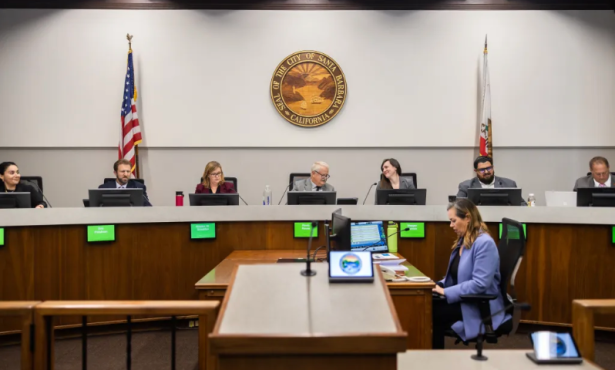Voters to Decide County Maintenance Proposal
Supervisors Approve Adam’s Initiative for June Ballot

After much frustrated back-and-forth, the Board of Supervisors voted 5-0 on Tuesday to put Supervisor Peter Adam’s initiative to address the maintenance of county-owned roads, parks, and buildings on the June ballot. The board was first confronted with the decision — to either approve the measure themselves or place it before voters — in January, but said they needed more information on how the ordinance could affect the county’s finances if it was supported in June.
The measure, championed by Adam after his attempts to get his colleagues to address the issue at last year’s budget talks were shut down, would require the supervisors to maintain the aforementioned facilities at their current condition or better, as opposed to adding the costs to the $300 million deferred maintenance backlog. Under the initiative (which will cost anywhere from $50,000 to $130,000 to put on the ballot), the county would be prohibited from incurring debt, unless it were voter-approved, to pay for the upkeep.
But the estimated cost to keep the facilities as-is — $18 million a year on top of the $6 million already allocated, according to the county’s Public Works Department— raised the eyebrows of many of the supervisors, especially given that the initiative couldn’t be modified. Concerns abounded about where that money will come from, and how it will affect the projected $17 million needed for jail operations when the North County Jail opens in 2018. First District Supervisor Salud Carbajal called the measure “the anti-public safety net initiative,” saying that, if approved, Adam’s proposal could mean “less cops, less firefighters.”
Possible options for providing that extra $18 million, county staff said, could come from raising revenue, redirecting revenue, or cutting the county’s fleet of facilities. Supervisors Carbajal and Doreen Farr will prepare an argument against the measure for the ballot, Adam will likely handle the rebuttal, county counsel will submit an impartial legal analysis, and the auditor-controller will write a fiscal impact statement.



